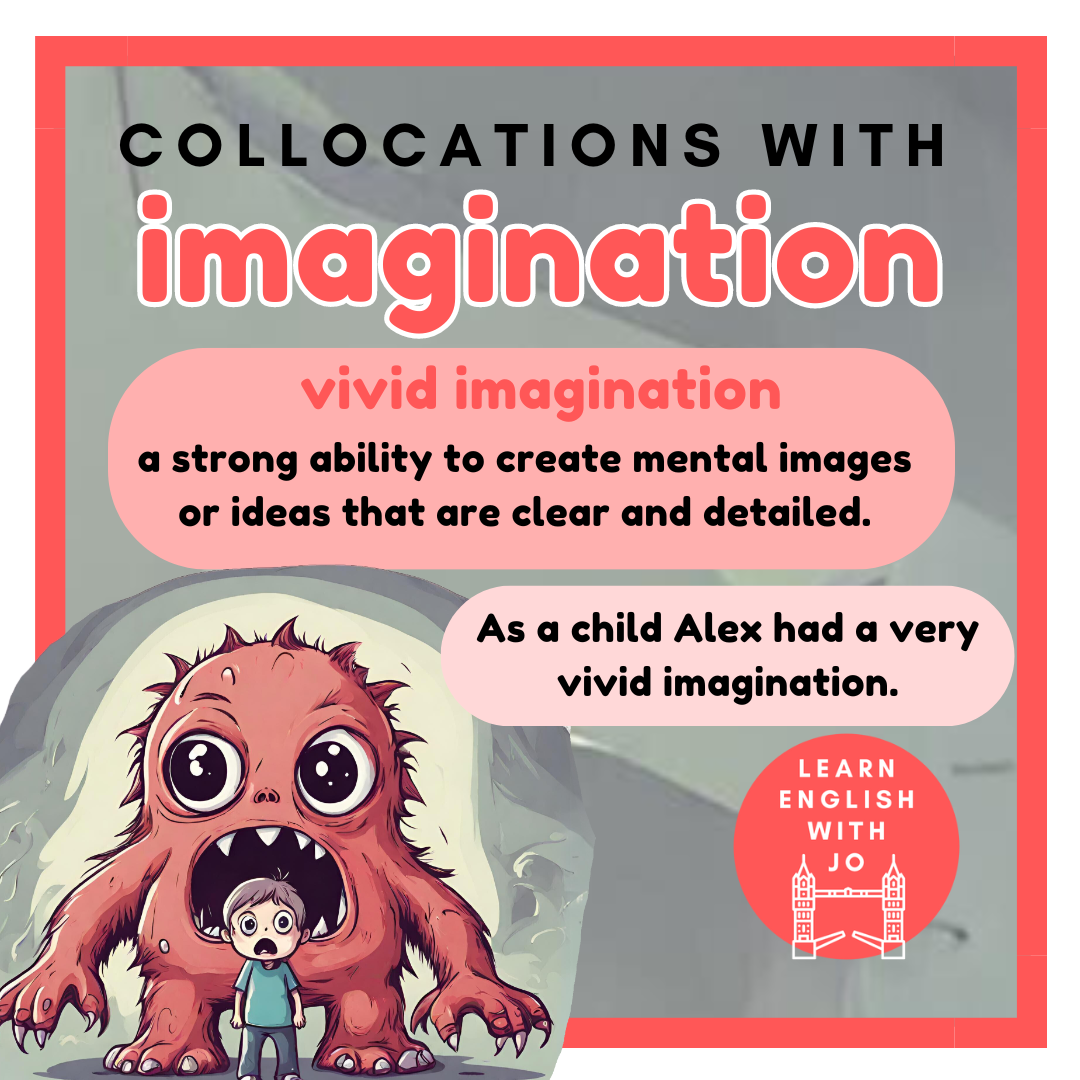English collocations with imagination.
This week one of my students wanted to talk about her child’s creativity. The conversation quickly developed into a discussion about imagination and we compared the imagination of a child to that of an adult. During our conversation we explored some of the language we can use to talk about creativity and imagination, including collocations that are commonly used with the word imagination.
Collocations are groups of words that often go together, and understanding them can significantly enhance your language skills. Let's explore how you could use the following collocations to enrich your English conversations.
Vivid imagination
Have you ever met someone who seems to have a vivid imagination? This collocation describes someone who has a creative and active mind.
Example: Sarah's vivid imagination allows her to write captivating stories.
A figment of somebody’s imagination
This phrase refers to something that exists only in one's mind and not in reality.
Example: The monster under the bed turned out to be just a figment of Timmy's imagination.
Recommended Book
English Collocations in Use- Intermediate
Amazon affiliate link
A lack of imagination
When someone is unable to think creatively or imaginatively, we say they have a lack of imagination.
Example: The movie was predictable and boring, showing a clear lack of imagination on the part of the writers.
Leaves little to the imagination
This expression suggests that something is very revealing or explicit, leaving little for one's imagination to fill in.
This expression is almost always aimed at women with the implication that their clothes reveal too much flesh (especially by tabloid newspapers.) I’d avoid using this expression unless you want to sound a little bit creepy.
By no stretch of the imagination
This phrase emphasizes that something is impossible to imagine or believe.
Example: By no stretch of the imagination could I ever picture myself skydiving.
In your imagination
When something exists only in your imagination and not in reality, we use this collocation. Some people use it to dismiss or challenge the validity of someone’s perception or belief.
Example: When I told him that I felt like he wasn’t listening to me, he told me it was all in my imagination.
To capture the imagination
This collocation refers to something that is so compelling or fascinating that it captures people's attention and interest.
Example: The new art installation captured the imagination of everyone who visited the gallery.
To fuel the imagination
When something inspires creativity or encourages imaginative thinking, we say it fuels the imagination.
Example: Reading fantasy novels often fuels the imagination of young readers.
Understanding these collocations not only helps you express yourself more fluently but also enables you to understand native speakers better. Incorporating them into your vocabulary allows you to communicate with more nuance and clarity.
So why are collocations important? Well, they provide insight into how native speakers use language naturally. By learning collocations, you not only expand your vocabulary but also gain a deeper understanding of how words work together to convey meaning effectively. Plus, using collocations correctly can make your speech sound more natural and idiomatic, boosting your confidence in English conversation.









